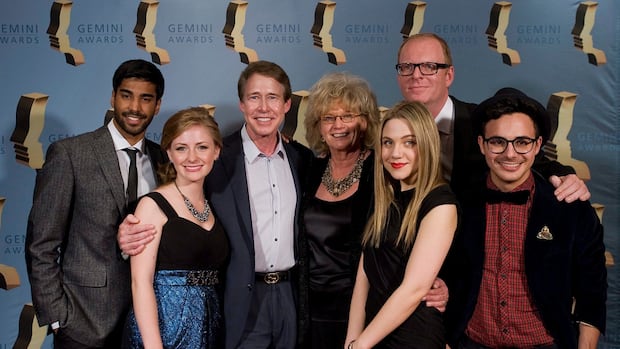After a landmark case spanning weeks of witness testimony and arguments, rap mogul and entrepreneur Sean (Diddy) Combs got his verdict.
After returning Wednesday morning, the jury announced their findings: Combs was guilty of two counts of transportation to engage in prostitution, and not guilty of two counts of sex trafficking and one count of conspiracy.
Those charges largely stemmed from his now-infamous “freak-offs”: sex parties, often drug-fuelled, that prosecutors alleged some were forced to participate in against their will. Also connected were Combs’s relationships with two women — R&B singer Casandra (Cassie) Ventura, and an unnamed woman referred to as “Jane.”
Both of Combs’s convictions were for offences against them. But looking to both expert opinion and reaction among fellow entertainers, it would hardly seem to be a doomsday scenario for Combs.
“Diddy beat the RICO [Racketeer Influenced and Corrupt Organizations Act],” wrote rapper 50 Cent, who has been involved in a decades-long feud with Combs. “That boy a bad man!”
“Oh, this makes me physically ill. Cassie probably feels so horrible,” singer Aubrey O’Day, formerly of the girl group Danity Kane, wrote on her Instagram story. “I’m gonna vomit.”
“I guess a jury just never wants to believe that a woman stays because of power and coercion,” wrote actor Rosie O’Donnell on Instagram. “Wow.”
That sentiment was reflected in the courtroom. Combs pumped his fist as the verdict was read out, and celebrated with his family once the session was adjourned.
Variety executive music editor Jem Aswad discusses what the Sean (Diddy) Combs trial might do to the music mogul’s career. Once known for founding Bad Boy Records in the 1990s with icons like the Notorious B.I.G., Faith Evans, Ma$e and 112, Combs was convicted of prostitution-related offences but acquitted of sex trafficking and racketeering conspiracy charges.
Read more: https://www.cbc.ca/1.7575149.
“I don’t think there’s any way … even if he ends up doing jail time, of saying this was not a win for him. Because it could have been so much worse,” Variety’s music executive editor Jem Aswad told CBC News Network.
In a legal sense, that comes from what some called an unexpected verdict for Combs.
Catherine Christian, an American defence attorney and former prosecutor, said the case came down to questions around consent.
In an interview before the verdict, she said the trial was largely influenced by 2016 video footage of Combs assaulting Cassie in a hotel hallway as she ran from him; Combs addressed and apologized for the incident, for which the statute of limitations had expired, so it could not be prosecuted.
However, Christian said, prosecutors framed the video as tangential evidence of criminal conspiracy and trafficking. “They’re saying that her running was trying to free herself from one of those freak-offs,” she said.
Further, she said, the conspiracy charge alleged that he used his powerful connections and resources to host and protect those parties “by committing crimes, including sex trafficking and bribery and kidnapping and arson.”
The defence, she said, admitted to sex occurring, but said it was consensual. That was the question on which the conspiracy and trafficking charges largely rested, making them harder to prove.
By Tuesday, the jury had delivered a verdict on every charge but that of conspiracy; the foreperson had claimed there were “unpersuadable” opinions on both sides.
“[The conspiracy charge] may have been one step too far for the jurors to think that his otherwise legitimate businesses were in fact these criminal organizations,” former U.S. federal prosecutor Mark Chutkow told CBC News.
Mann Act
That charge could have led to a maximum of life in prison. Meanwhile, the other charges he was found not guilty of — sex trafficking by force, fraud or coercion — Chutkow noted could have carried a potential 15-year mandatory minimum sentence.
“Both of the sex trafficking counts for both Cassie and Jane came back with not guilty. That I was really surprised about, especially as it relates to Cassie,” legal analyst Terri Austin noted, saying the 2016 video led many to believe Combs would be found guilty there.
Combs was solely convicted for violating the Mann Act, a 1910 law aimed at punishing those who traffic people across state lines for illegal sexual purposes, regardless of consent. Unlike the sex trafficking charge of which Combs was found not guilty, the Mann Act does not necessitate that the individuals involved be underage, or that coercion or force played a part.
Mann Act violations incur a maximum sentence of 10 years, relatively short compared to the other charges he was facing. Combs was actually very lucky in that sense, said Austin.
If his sentences for his two convictions ran consecutively, Combs could still serve a maximum of 20 years in prison. But Chutkow said that is unlikely, because the two charges aren’t associated with force, fraud or coercion, and Combs was acquitted of more serious ones.
But the record executive’s legal battle is far from over. Austin noted Combs still currently faces dozens of civil suits — the results of which will likely be influenced by his criminal charges, she said, despite the two not actually being linked.
The mixed-bag court result could translate to similar outcome there, she said: civil proceedings that will likely result in settlements, though now potentially less impactful to Combs than they otherwise would have been.
Meanwhile, she said, the verdict could have a ripple effect.
“I believe that this verdict is going to make [sex-related cases] that come down the line a little more difficult to prove,” she said. “It’s very hard to get up on that stand for victims. Cassie got up on that stand. Jane got up on that stand. The jury didn’t believe them — they believed that there was consent.”
Andrine Johnson, CEO of Embrave, a charity for survivors of gender-based violence, said the case already took its toll, even ahead of the verdict. Given how high-profile and drawn out it was, she said, a not-guilty verdict could send a message to victims of sexual violence.
“Those things suppress a person’s voice from speaking out. And it further really hones in on how oppressive the system is.”
Aswad had a similar reaction: He called the judgment a setback for the Me Too movement, with a verdict that likely could have gone a different way “if we were in this same situation four years ago.”
It also means Combs could return to the music world, which has largely shunned him in recent years: “I think it’s just a matter of time before — redemption may be too strong of a word — before he’s back at it.
“Music tends to be a bit more forgiving a lot of the time,” he said, pointing to the continued careers of rapper Ye (who has been widely condemned for espousing antisemitic beliefs) and record executive Russell Simmons (the subject of a number of sexual misconduct allegations).
“There’s no reason to think that it that, especially after a period of time goes by, that wouldn’t be the case for [Combs], as well.






